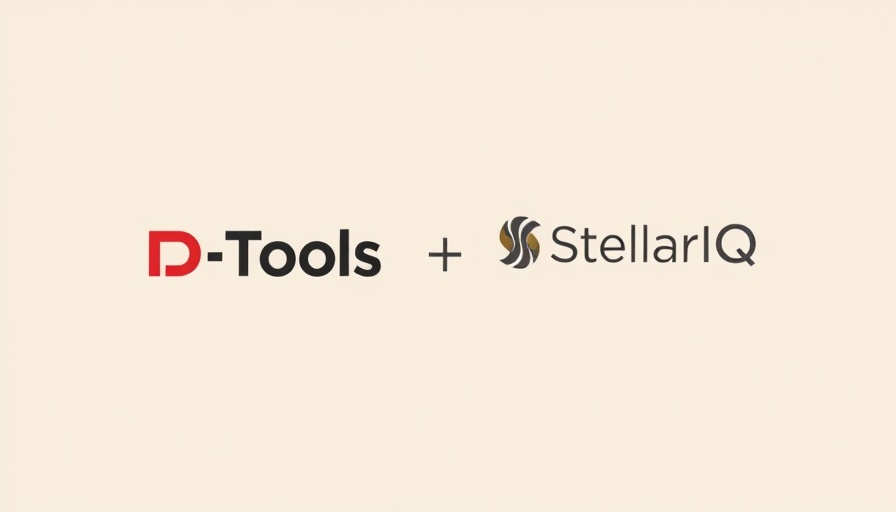
StellarIQ's Smart Funding: More than Just Money for D-Tools
In a significant leap forward for D-Tools, the company has announced a robust $12 million investment, primarily led by the visionary technology executive John Heyman through his newly minted company, StellarIQ. This funding, a part of D-Tools' Series C round, not only injects capital but also promises access to cutting-edge artificial intelligence technologies that can reshape their offerings.
CEO Randy Stearns expressed his enthusiasm for the investment, highlighting how this funding aligns perfectly with their mission to empower system integrators. With innovative tools and actionable insights at their disposal, D-Tools aims to alleviate the complexities within the integration landscape and foster growth for their users.
AI Integration: A Game Changer for System Integrators
The true game-changer in this partnership lies in StellarIQ’s proprietary AI technology, which is set to become an integral part of D-Tools' product suites. By harnessing AI, D-Tools can offer solutions that not only streamline operational processes but also provide enhanced data analysis capabilities—critical for making informed business decisions in real-time.
Boosting the Marketplace: What This Means for the Industry
This investment exemplifies a growing trend in the tech industry where collaboration becomes as vital as competition. By blending StellarIQ's technology with D-Tools' existing framework, the partnership stands to widen the horizons for businesses striving for efficiency and effectiveness in their operations.
Future Opportunities: Unfolding Potential for New Solutions
As D-Tools moves forward with this transformative investment, the potential for developing new solutions is immense. The company could explore enhanced customer platforms and smarter operational tools that utilize AI to tailor responses and actions based on real-time data inputs. This shift denotes a future where integration is simplified, and outcomes are more predictable—all thanks to smart technology.
Conclusion: engendering Innovation in Integration
StellarIQ's significant investment not only represents financial growth but also symbolizes a commitment to technological advancement that can propel D-Tools—and the entire integration sector—into a new era of innovation. By marrying finance with cutting-edge technology, D-Tools is paving the way for a future driven by purpose-built tools that resonate with contemporary market needs.
 Add Row
Add Row  Add
Add 




Write A Comment